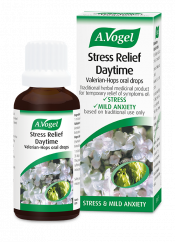What is the cause of night sweats in men?
Sweat is produced by the body's sweat glands in order to control temperature. The skin has 2-3 million sweat glands and the sweat produced by them removes heat from the body when it gets too hot. In addition, sweat gets rid of toxic waste products and excess salt from the body.
So, sweating is a perfectly normal and beneficial process. The only concern would be if we are sweating too much. An indication of this would be if your sheets are regularly soaked at night, or if you have to change your clothing frequently during the course of the day.
To understand a bit more about excessive sweating, this blog looks at what the common causes of night sweats are.
- Stress
- Testosterone levels
- Medication
- Flu
- Alcohol consumption
- Hypochondriasis
- Low blood sugar
- Sleep apnoea
1. Stress
You may notice that your body produces more sweat when you're stressed or anxious – perhaps your palms get clammy before an interview, for example. The reason for this is that sweat glands are triggered to release sweat by delicate nerves. The nerves themselves are easily receptive to changes in hormones, such as increased cortisol levels, that are caused by stress.
Unfortunately, as you'll be all too aware, the stresses we hold during the day don't disappear just because we've gone to bed. In fact, the quiet solitude found at night often creates the perfect opportunity for stress to build further, thus leading to night sweats.
What can I do?
The most efficient method for tackling stress will really depend on what is causing you concern in the first place. Is it about sharing responsibility at work so that there is less of a load on you? Is it about talking to those around you to help relieve some of the pent-up issues?
For a more general approach to dealing with stress, herbal remedies are also worth considering.
2. Testosterone levels
Low levels of the male sex hormone testosterone may also be linked to night sweats. This decline occurs naturally with age and, whilst some men will not experience any problems, for others symptoms can be more prominent. As well as night sweats, low testosterone can be a contributing factor in low libido, low energy and increased body fat in men over the age of fifty or so.
What can I do?
Lifestyle changes can go some way to helping the symptoms of low testosterone levels. Exercising on a regular basis and eating a good diet with lots of natural foods is best. Zinc, which is found in various nuts and seeds, is thought to be particularly helpful. However, if your symptoms persist, get checked out by your doctor as well.
3. Medication
A few common medications can have side effects that include night sweats. This includes antidepressants, steroids, pain relief tablets such as aspirin, and treatments for diabetes.
What can you do?
Always speak to your doctor if you think that your medications could be contributing to undesirable symptoms. It is important you keep taking medications until consultation can be arranged.
4. Flu
One of the common symptoms of flu is increased temperature and for some, this may result in night sweats. This occurs as the immune system attempts to kill off the virus by altering things like body temperature, to reduce the virus's chances of survival. Sweating generally occurs in the later stages of infection as the body tries to bring temperature back under control.
What can you do?
Help to address your cold or flu symptoms with Echinacea, a natural remedy for easing signs of an infection. I recommend Echinaforce Hot Drink, in particular, as it can be very soothing and comforting during this time.
5. Alcohol consumption
If you've had a heavy night of drinking before falling into bed, this could impact night time sweating. Alcohol impacts the body's ability to regulate temperature, meaning things might short-circuit just a little, thus resulting in sweating! Night sweats can also be a symptom of alcohol withdrawal.
What can you do?
Apart from going easy on your alcohol intake in the first place, it may be quite helpful to put the beers away a couple of hours before you head to bed.
6. Hyperhidrosis
If you experience excessive sweating on a very regular basis, it could be a sign of hyperhidrosis. This basically means you experience regular, extreme sweating that may occur all over the body or simply in certain areas such as the hands. It isn't serious and usually gets better over time.
What can you do?
Wear loose clothing when you go to bed at night and ensure the room is at an even, cool temperature. You could also try a natural deodorant such as Salt of the Earth. It might seem a bit silly to wear deodorant at night but if it makes you feel more comfortable and improves sleep, why worry?

7. Low blood sugar
When blood sugar levels drop too low, adrenaline levels increase. This can then lead to excessive sweating. Once blood glucose levels are back under control, the sweating should ease.
What can you do?
If this is a frequent problem for you, speak to your doctor to help resolve the issue.
8. Sleep apnoea
Sleep apnoea is very common among men. This causes an individual to stop breathing for very short periods of time whilst they are asleep, though often they don't even realise it has happened. As well as this, some symptoms of sleep apnoea include night sweats, snoring and daytime tiredness.
What can you do?
Much of the time the symptoms of sleep apnoea are mild and do not require treatment. However, in more severe cases where the condition is continuously disrupting your sleep, it is best to consult your GP.










